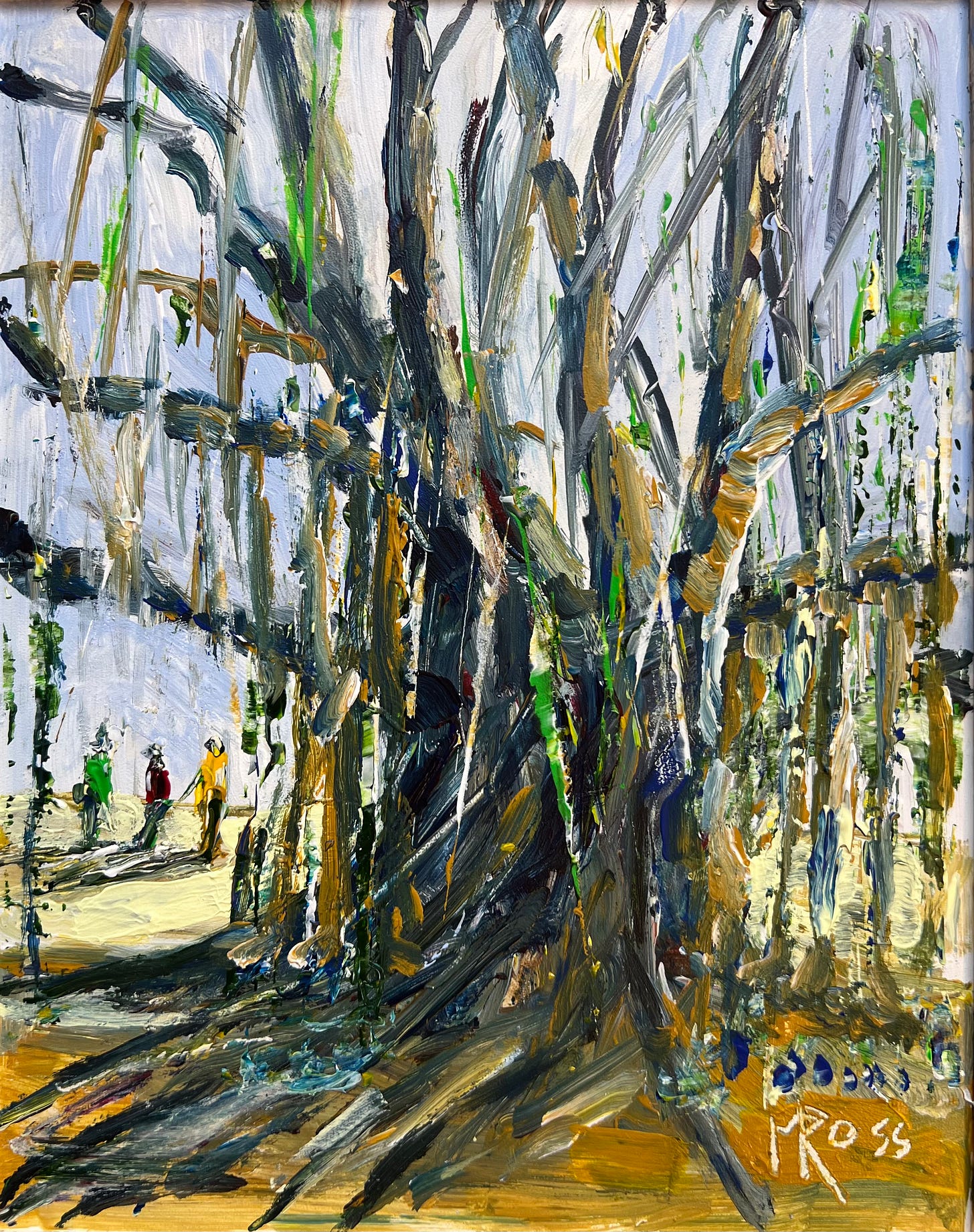Over the past few years I’ve taken more interest in trees. Maybe it’s my age, my current solo/divorced status (trees listen ;) ), the “soul nature” authors I’ve come to love (like Bill Plotkin), or tree-books like “The Overstory” (thanks Kat). For whatever reasons, trees are playing a bigger role in my life. I journal about them, draw them, photograph them, touch them on hikes, and even label the ones in my yard (Black Walnut, Honeysuckle, Black Gum, Oak, Tulip; just to name a few).
I used to think of trees as strong, stand-alone, individualistic plants. With roots deep in the ground, trees stand in solitary grandeur, withstanding the natural elements as well as man-made hazards to survive over the years. This imagery worked well for me, in a sense paralleling my own life. Despite loving family and friends, I often thought of myself as persevering singularly through life, individually fighting battles, overcoming obstacles, and working primarily alone through my own hero’s journey.
But that’s not exactly right…
During my years of owning a property in Park City, UT, I was exposed to and grew to love Aspen trees, which are the most widespread tree species in North America. And the more I learned about Aspens, the more my understanding of trees—-and myself—-changed. According to the National Forest Foundation, “ One aspen tree is actually only a small part of a larger organism. A stand or group of aspen trees is considered a singular organism with the main life force underground in the extensive root system. Before a single aspen trunk appears above the surface, the root system may lie dormant for many years until the conditions are just right, including sufficient sunlight. In a single stand, each tree is a genetic replicate of the other, hence the name a “clone” of aspens used to describe a stand.
Put simply, Aspen trees aren’t stand-alone, solitary beings. They’re a community, and their strength (and life) lies in their symbiotic connectedness underground. Wow, how cool! And interestingly, the more I learned about trees, the more I discovered that Aspens aren’t the sole exception. There are many, many species that have connected root systems, including the mighty Redwood, and the Banyan.
During the early times of my own “lifequakes” —-family challenges, divorce, cancer, major career changes —- I realized I’d been taking my own “root” communities for granted. Or better said, I wasn’t allowing those communities to keep me firmly rooted. I was trying to weather the storms alone, without recognizing how much easier it was to survive through and with others. Of course this required vulnerability and reaching or tumbling to our depths (or “falling upward” as Richard Rohr teaches), which usually only comes through hardships.
While in a session at the Modern Elder Academy (MEA), we talked about the metaphor of a tree for our lives. Roots as our foundation, our values, our containers, and our communities. The trunk as our experiences, our growth and our learning. The branches as how we reach into the world, and how we serve. And finally, the “fruit” as what we give to the world, that enables creation or regeneration.
Eventually, and through the patience and love of many “rooted trees” in this world and beyond, I came to understand and take strength from my root system and it’s ever-spreading connectedness. I embraced the tree metaphor and came to think of myself as both growing downward—-expanding rootedness—-and upward—-expanding purpose and service. In fact, I even created a short rhyme:
The more connected the roots,
The more plentiful the fruits.
I hope your own root system is deep, healthy and growing!
Ray
May you have gratitude, may you have forgiveness, may you have love
Banyan tree painting courtesy of Mark Ross, friend and coach



Great connection to this week’s focus together, following Monday’s question “Where are you rooted?” 🥃
Thankful for your collaboration on this essential discussion, my friend! #Identity
Greatly appreciate this Ray. As I shared with you; my backyard spruce trees, northern WI red pines and now the walnut's shading the pickle ball court.
Appreciate your friendship and willingness to share your continued journey!